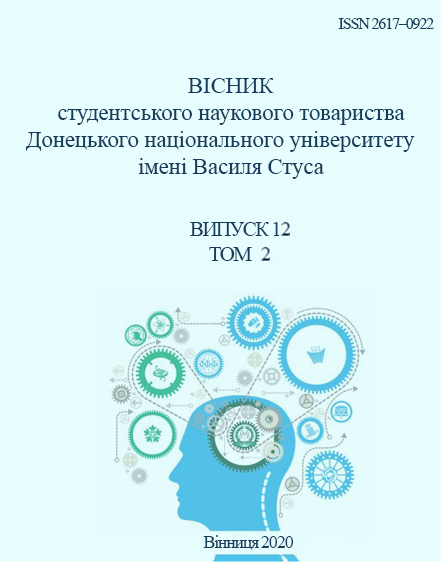Security policy of the Kingdom of Sweden
Keywords:
Sweden; neutrality; security policy; Euro-Atlantic integrationAbstract
This study highlights the transformation of the security policy of the Kingdom of Sweden after the end of the bipolar confrontation, as well as adaptation to the new threats of the international environment of the 21st century. Based on a systematic approach, using the method of critical analysis, the main trends in the development of Swedish security policy in the late 20th century and early 21st century are studied. Explained the reasons for moving away from traditional neutrality and easing the non-aligned status. Revealed the issues of relations between Stockholm and the North Atlantic Treaty organization (NATO) and cooperation on the verge of membership. The article analyzes the relationship of the state with the European Union and neighboring States of the Scandinavian region.
References
Антошкін В., Цвірова В. Трансформації концепції нейтралітету та позаблоковості європейських країн в умовах глобалізації. Стратегічні пріоритети. 2013. № 2 (27). С. 161–167.
Чекаленко Л. Д. Позаблоковість чи нейтралітет: європейський досвід. Зовнішні справи. 2013. № 7. С. 16–19.
Czarny R. M. Sweden: From Neutrality to International Solidarity. Springer International Publishing. 2018. DOI 10.1007/978-3-319-77513-5.
Dalsjö Robert. The hidden rationality of Sweden’s policy of neutrality during the Cold War. Cold War History. 2014. 14 (2): 175–194. DOI 10.1080/14682745.2013.765865.
Cottey A. The European neutrals and NATO: ambiguous partnership. Contemporary security policy. 2013. 34 (3), 446–472. DOI 10.1080/13523260.2013.842295.
Wagnsson C., A security community in the making? Sweden and NATO post-Libya. European security. 2011. 20 (4), 585–603. DOI 10.1080/09662839.2011.633514.
Воловой В., Баторшина И. А. Система безопасности в Балтийском регионе как проекция глобального противостояния России и США. Балтийский регион. 2017. Т. 9, No 1. С. 27–43.
Зарецкая О. В. Трансформация внешней политики и регионализм Швеции в конце ХХ века. Скандинавские чтения: этнографические и культурно-исторические аспекты: [сборник] / Рос. акад. наук, Музей антропологии и этнографии им. Петра Великого. Санкт-Петербург: Кунсткамера, 2014. С. 183–191.
Громыко Ал. А., Плевако Н. C. О возможном вступлении Швеции и Финляндии в НАТО. Современная Европа. 2016. No 2 (68), март-апрель. С. 13–16.
Лільєґрен Г. Від Таллінна до Туреччини. Мемуари шведа і дипломата. К.: Темпора, 2010. 352 с.
Усубов Ф. Дж. Проблемы сотрудничества НАТО с нейтральными странами Европы в начале ХХІ века. Известия Российского государственного педагогического университета им. А.И. Герцена. 2010. С. 374–380.
Шевченко А. Р. Основні принципи та напрями зовнішньої політики Швеції: автореф. дис. ... канд. політ. наук : 23.00.04; НАН України, Ін-т світ. економіки і міжнар. відносин. К., 2013. 19 c.
Килин Ю. М. Нейтральные государства на распутье: проблема вступления в НАТО Финляндии и Швеции. Современная Европа. 2017. No 2 (74), март-апрель. С. 65–76.
Gotkowska J., Szymański P. Between Cooperation and membership: Sweden and Finland’s relations with NATO. OSW Studios. 2017. # 62. 31 p.
More Swedes want to join NATO than stay out / новинний портал The Local. URL : https://www.thelocal.se/20150914/poll-more-swedes-now-for-nato-than-against.

